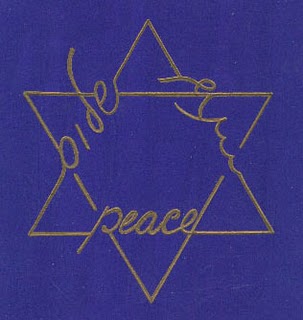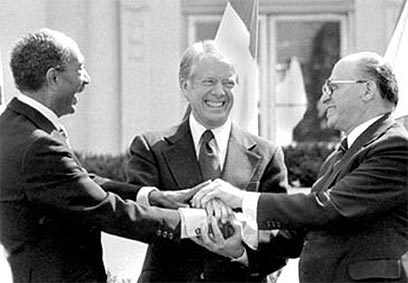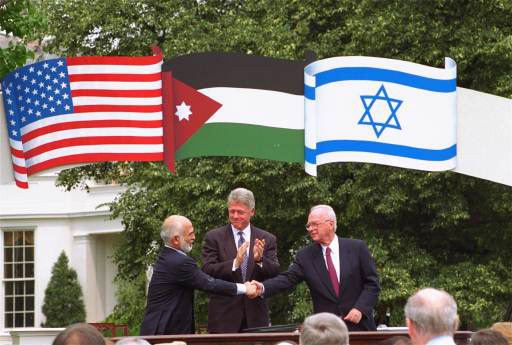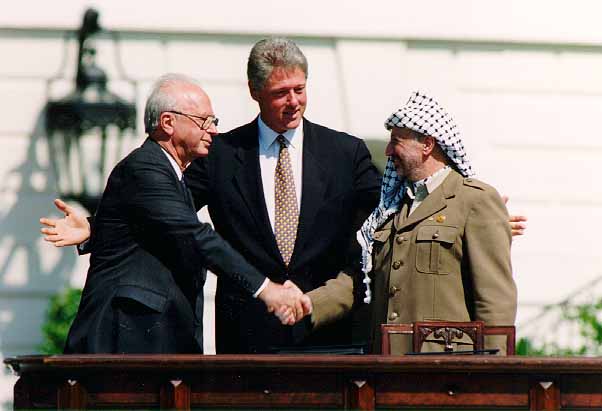 September brings with it the expectation of new beginnings: a new school term, a new Hebrew year, a new season. This year, September brings with it uncertainty and concern, as the UN is scheduled to vote on the recognition of a Palestinian state. This will certainly place Israel in the spotlight, as an assault on Israel’s legitimacy continues to penetrate public opinion. The recent escalation of hostilities in Israel reminds us once again of the fragility of our situation.
September brings with it the expectation of new beginnings: a new school term, a new Hebrew year, a new season. This year, September brings with it uncertainty and concern, as the UN is scheduled to vote on the recognition of a Palestinian state. This will certainly place Israel in the spotlight, as an assault on Israel’s legitimacy continues to penetrate public opinion. The recent escalation of hostilities in Israel reminds us once again of the fragility of our situation.
This is such a complex matter that I would like to try to shed some light on the frustrating reality of making peace:
This month, 33 years ago, Israel and Egypt began to hammer out a peace accord at Camp David. The main features of the treaty were the mutual recognition of each country, the cessation of the state of war that had existed since the 1948 Arab–Israeli War, and the complete withdrawal by Israel of its armed forces and civilians from the Sinai Peninsula, which Israel had captured during the Six-Day War in 1967. Egypt agreed to leave the area demilitarized. The agreement also provided for the free passage of Israeli ships through the Suez Canal. This historic agreement made Egypt the first Arab country to officially recognize Israel.
There was resistance to the treaty from both sides. Although most Israelis supported the treaty, the Israeli settler movement opposed it. Israel had to withdraw from the entire Sinai Peninsula and to give back land, conditions they considered unacceptable. (Today, more than thirty years later, the Peace Accords are supported by 85 percent of Israelis.) The Arab nations, and especially the Palestinians, condemned the treaty and considered it a stab in the back.
 The treaty led to the 1978 Nobel Peace Prize for both Egyptian President Anwar Sadat and Israeli Prime Minister Menachem Begin.
The treaty led to the 1978 Nobel Peace Prize for both Egyptian President Anwar Sadat and Israeli Prime Minister Menachem Begin.
The resulting peace is often described as a “cold peace,” with many Egyptians skeptical about its effectiveness. However, it has lasted for over thirty years, and Egypt has become an important strategic partner. The Egyptian Revolution of 2011 has encouraged fears in Israel about the future of the treaty. After the Egyptian army took power, it announced that Egypt would continue to abide by all its international and regional treaties. However, some in Egypt are calling for the treaty with Israel to be reassessed.
 The Treaty of Peace between the State of Israel and the Kingdom of Jordan was signed in 1994, normalizing relations between the two countries and resolving territorial disputes. The signing ceremony on October 26, 1994 occurred at the southern border and made Jordan the second Arab country to normalize relations with Israel.
The Treaty of Peace between the State of Israel and the Kingdom of Jordan was signed in 1994, normalizing relations between the two countries and resolving territorial disputes. The signing ceremony on October 26, 1994 occurred at the southern border and made Jordan the second Arab country to normalize relations with Israel.
The Israeli public fully supported the agreement with Jordan, and Egypt welcomed it while Syria ignored it.
However, the Lebanese militia group Hezbollah resisted the treaty and 20 minutes prior to the ceremony launched mortar and rocket attacks against northern Galilee towns. Following the agreements, Israel and Jordan opened their borders. Several crossings were erected, allowing tourists, merchants and workers to travel between the two states. When Yitzhak Rabin was assassinated in 1995, King Hussein participated in Rabin’s funeral. In 1997, a Jordanian soldier killed seven Israeli school girls visiting a site by the border. King Hussein shortened his planned visit to Spain and traveled to Israel to personally visit the bereaved families. Today, Israel’s relationship with Jordan is stable and borders are open for tourism and business.
The Israeli–Palestinian conflict has known ups and downs over the years. Since the 1970s, there has been an effort to find ways in which progress can be made in both the Arab–Israeli conflict and in the Palestinian–Israeli conflict. Palestinians have held diverse views and perceptions of the peace process. The goal from a Palestinian point of view has long been to bring home the 1948 refugees to a Palestinian state. For groups such as Hamas, this is still the goal. For other Palestinians, the biggest breakthrough was the Oslo Accords; negotiations between Israel and the PLO were conducted secretly in Oslo, Norway, hosted by the Fafo institute, and completed in August, 1993. The Accords were subsequently officially signed at a public ceremony in Washington, DC on September 13, 1993, in the presence of PLO Chairman Yasser Arafat, Israeli Prime Minister Yitzhak Rabin, and US President Bill Clinton.
 The Oslo Accords were a framework for the future relations between the two parties, and they provided for the creation of a Palestinian National Authority (PNA). The Palestinian Authority would have responsibility for the administration of the territory under its control. The Accords also called for the withdrawal of the Israel Defense Forces (IDF) from parts of the Gaza Strip and West Bank.
The Oslo Accords were a framework for the future relations between the two parties, and they provided for the creation of a Palestinian National Authority (PNA). The Palestinian Authority would have responsibility for the administration of the territory under its control. The Accords also called for the withdrawal of the Israel Defense Forces (IDF) from parts of the Gaza Strip and West Bank.
It was anticipated that this arrangement would last for a five-year interim period, during which a permanent agreement would be negotiated. Permanent issues such as positions on Jerusalem, Palestinian refugees, Israeli settlements, security and borders were deliberately left to be decided at a later stage.
The Accords were controversial with the Israeli public and the Knesset (Israel’s Parliament). The left-wing parties were supportive, but right-wing parties were highly critical: Prime Minister Rabin was accused of legitimizing a leader and an organization that he himself had slandered in the past. Other accusations concerned the relinquishment of the historical homeland of the Jewish people while undermining Israel’s safety.
On November 4, 1995, Prime Minister Yitzhak Rabin was murdered by Yigal Amir, a far-right-wing student who opposed the signing of the Oslo Accords.
In 2004, a survey by the University of Tel Aviv found that only 26 percent of Israelis still supported the Accords and even fewer—18 percent–believed that the Accords would result in peace in the next few years. In December 2010, a report in al-Quds al-Arabi (an independent pan-Arab daily newspaper published in London), asserted that the Palestinian Authority no longer regarded itself as being bound by the Oslo Accords; however, as of June, 2011 the PA has not made any official declaration to that effect.
The word Shalom means peace, hello and goodbye in Hebrew. Starting Thursday afternoon, when people are starting to get ready for Shabbat, we greet one another with “Shabbat Shalom.” On September 1 all radio stations play the song “Shalom Kita Alef” (Shalom first grade) over and over. The word Shalom is used repeatedly, with many different variations. Many names come from the root of the word Shalom. Endless songs have been written about our desire to reach peace. We differ in the ways we think we can get there. We differ in what we think the price for peace should be, but the dream is the same.
The popular song SHALOM SALAAM PEACE by Hadag Nachash band (translated from Hebrew)
Shalom salaam peace
Shalom salaam peace
Shalom salaam peace it’s possible here too
not just in Paris or Nice or Adis Abeba
disco’s full of people
everyone dancing ‘cuz everyone’s content
smiling, dancing, singing,
blessing of peace
because there is
Shalom salaam peace
Shalom salaam peace
Shalom salaam peace
Shalom salaam peace
Shalom salaam peace it’s possible here too
not just in Paris or Tunis or in Nice Nice Nice
we’ll rout out the enemies, we’ll met the hostility
we’ll defeat the terror, we’ll spread love
Nobody wants to die but if one must
then isn’t it prefereable in jeans
instead of a uniform
with the help of grass we’ll take out the sadness
everyone can dance now
to live inside the beat
Shalom salaam peace
Shalom salaam peace
Shalom salaam peace it’s possible here too
not just in Paris or Nice or in Amsterdam –
but here too – free people walk
do Tai Chi
open a box, aren’t being afraid
of reserve duty call-up because peace is –
more than a ceasefire or a piece or a zone
peace is a feeling but that’s not new
for sure, yes peace is
peace is tranquility
peace is fun*
and the whole world is tranquil.
So don’t say a day will come, bring the day
and in all the city squares cheer for peace
Shalom salaam peace
Shalom salaam peace
Shalom salaam peace it’s possible here too
not just in Paris or Nice or Boston –
words could not explain to me
how much peace is needed – like air
peace is needed – like air…
peace is needed – like air…
peace is needed – like air…
Look my friend, peace is a must
I think this is clear for everybody
I’ve been and I’ve seen
In Australia people live in peace
“obviously” (why wouldn’t they) (ironic slang)
I mean just like kangaroo
And koala
In the world, each country with peace
Is a country sababa
And the one with no peace, is a chaos
And what’s the big deal
I don’t know
All we need to do
Is to act like human beings
And not like animals
Look, gang, we need peace
and it’s already quite clear to everyone
I think
I was (there) and I saw
in Australia people look good
they look like kangaroos like koalas
and totally…a land with peace is a fun land
and a land without peace is a land of foul mess*
so what’s the big story I don’t understand
after all, what’s needed to do
is to behave like human beings
not like animals
to show some more respect
so then good luck to us all…



